*NURSING > EXAM REVIEW > NUR2115 Fundamentals of Professional Nursing Concept Review Final EXAM (All)
NUR2115 Fundamentals of Professional Nursing Concept Review Final EXAM
Document Content and Description Below
NUR2115 Fundamentals of Professional Nursing Concept Review Final EXAM MODULE 1-CH 1-4, 17 • What or who is the central focus of nursing? (p 7-10) o The patient is the central focus in ... all definitions. Pt centered care includes the physical, mental, spiritual and emotional well-being of the patient. • Four AIMS of Nursing (p 12-16) 1. Promote Health a. Persons level of health is affected by many different interrelated factors that either promote heal or increase the risk for illness. These factors include genetics, cognitive ability, education level, race, ethnicity, culture, age, gender, lifestyle, environment and socioeconomic status. 2. Prevent Illness a. The objective of illness prevention is to reduce the risk of illness and promote good health habits, maintaining optimal function. 3. Restore Health a. Performing assessment, report findings, providing direct care such as treatments, medication administration and collaborating with other care team members. 4. Facilitated coping w/ disability or death a. Nurse facilitated an optimal level of function through maximizing the persons strengths and potentials, through teaching and through referral to community support. b. Nurses provide care to both patients and families during end of life care, and they do so in hospitals, long term care facilities, hospices and homes. • What are the factors un each of the four aims? o Cognitive – thinking about the nature of things to make decisions regarding health care. o Technical- enables nurses to manipulate equipment to produce desired outcomes. o Interpersonal- involve caring relationships o Ethical/Legal- enable nurses to conduct themselves morally and professionally • Primary, Secondary, tertiary prevention o Primary- Promoting health and preventing the dev. of disease or injury. Ex: immunization clinics, teaching about the importance of healthy diets, exercising, safe sex, seatbelts, etc. o Secondary- Screening for early detection of disease with prompt diagnoses and treatment. Ex: mammograms, skin cancer screenings, teaching testicular self-examination to men, administering medications and caring for wounds, blood pressure screening. o Tertiary: Begins after diagnosis and treatment, with the goal of reducing disability and promoting rehabilitation to the maximum level of function. Ex: teaching diabetes patient how to recognize and prevent complications. PT, referring women who has had a mastectomy to a support group. • Define Health (p 16) o Health is a state of optimal functioning or wellbeing. As defined by the WHO. Ones health includes physical, social, and mental components and is not merely the absence of disease or infirmity. • ANA (p 17-20 o Professional organization for RNs in the US. They wrote the scope and standards and the code of ethics for nursing. o Nurse practice acts are laws established in each state to regulate the practice of nursing. Defines legal scope of nursing practice Creates a state board of nursing to make and enforce rules and regulation Define the important terms and activities in nursing, including legal requirements and titles for RN’s and LPN’s Establish criteria for the education and licensure of nurses. • Develop a PICO statement o Patient, population, or problem of interest o Intervention of interest o Comparison o Outcome Ex: P: at risk ICU patients for skin break down I: EBP of turning q 2 hr C: not turning O: reduce risk of pressure ulcers • Where does our knowledge come from? (24-25) o Traditional knowledge: nursing passed down form generation to generation. (“We’ve always changed bed linens q 24 hrs) o Authoritative knowledge: Comes from an expert and is accepted as truth based on the person’s perceived expertise. o Scientific knowledge: is knowledge obtained through the scientific method (implying through research.) • Maslow’s Hierarchy of needs: o Level 1: Physiologic needs for oxygen, water, food, elimination, temperature, sexuality, physical activity, and rest are needed to maintain life. [Show More]
Last updated: 2 years ago
Preview 1 out of 15 pages
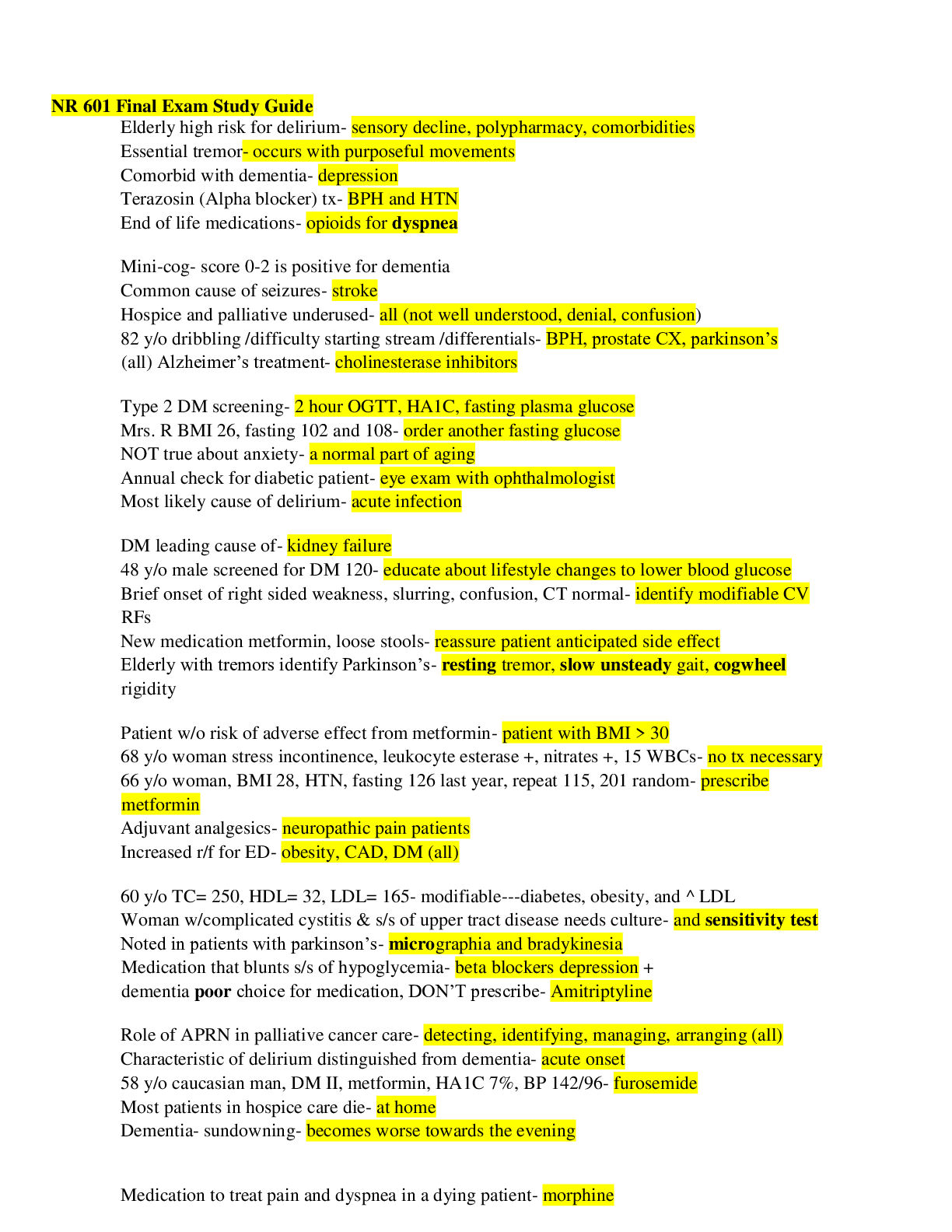
Buy this document to get the full access instantly
Instant Download Access after purchase
Buy NowInstant download
We Accept:

Reviews( 0 )
$13.00
Can't find what you want? Try our AI powered Search
Document information
Connected school, study & course
About the document
Uploaded On
Nov 06, 2020
Number of pages
15
Written in
Additional information
This document has been written for:
Uploaded
Nov 06, 2020
Downloads
0
Views
117

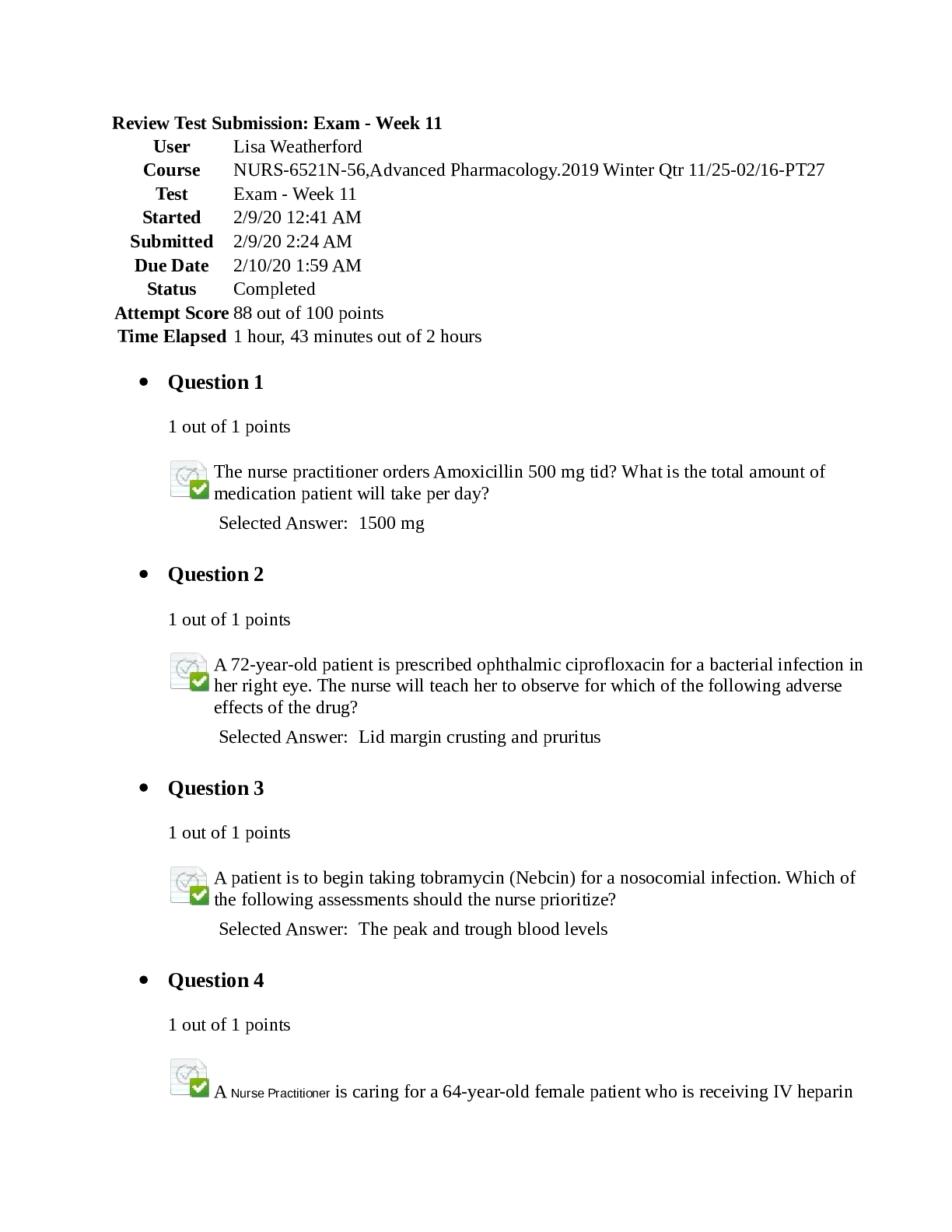
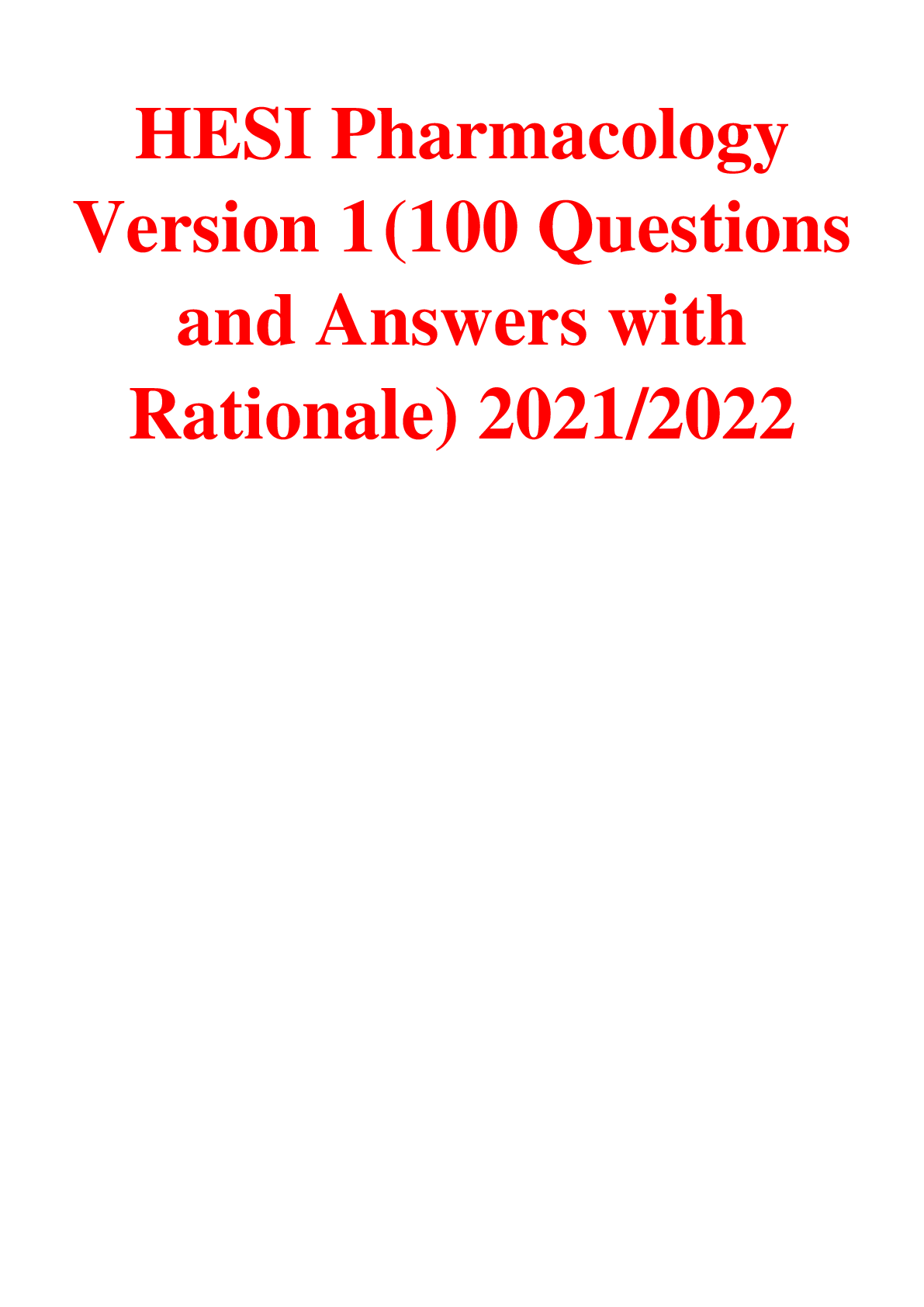








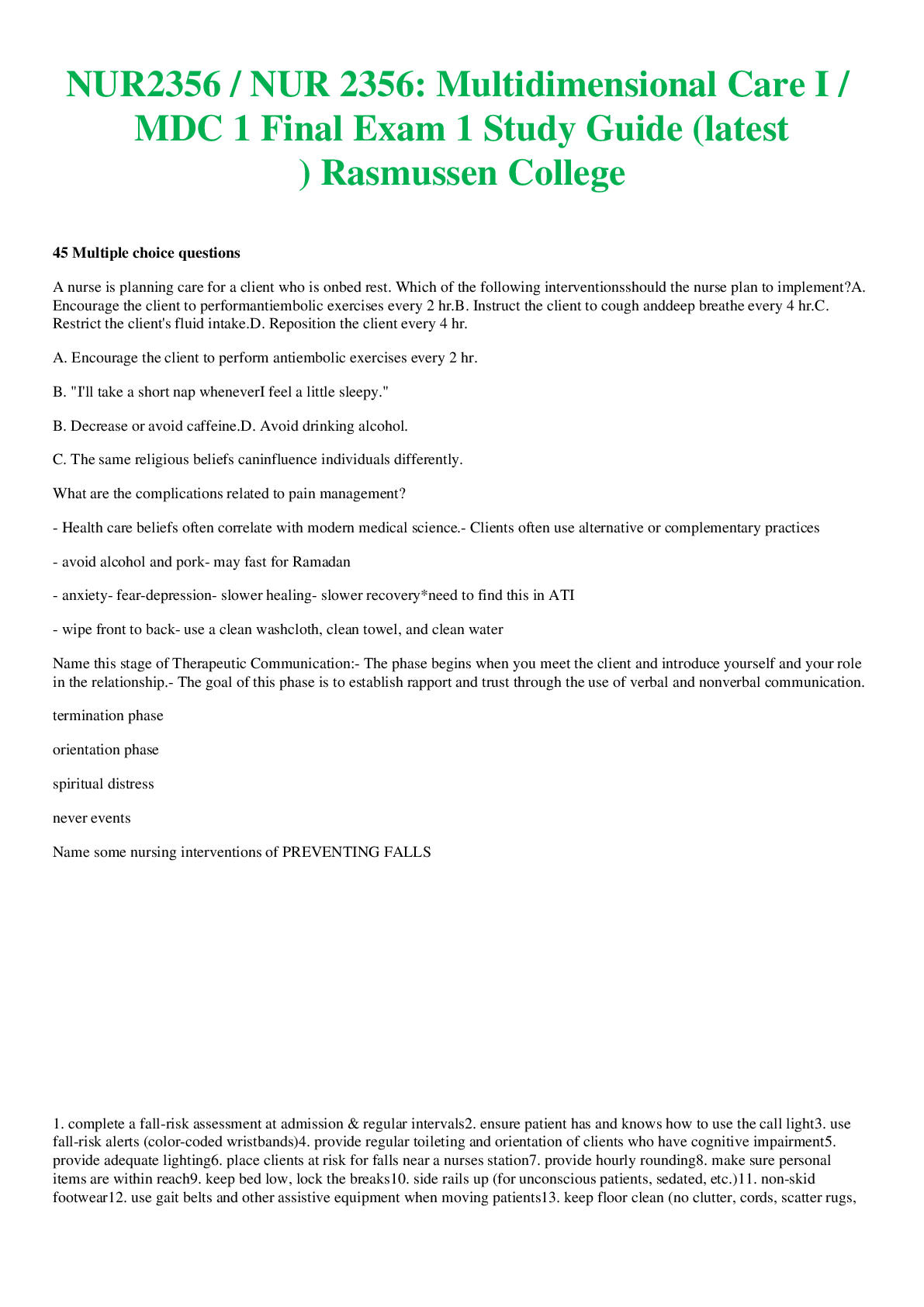
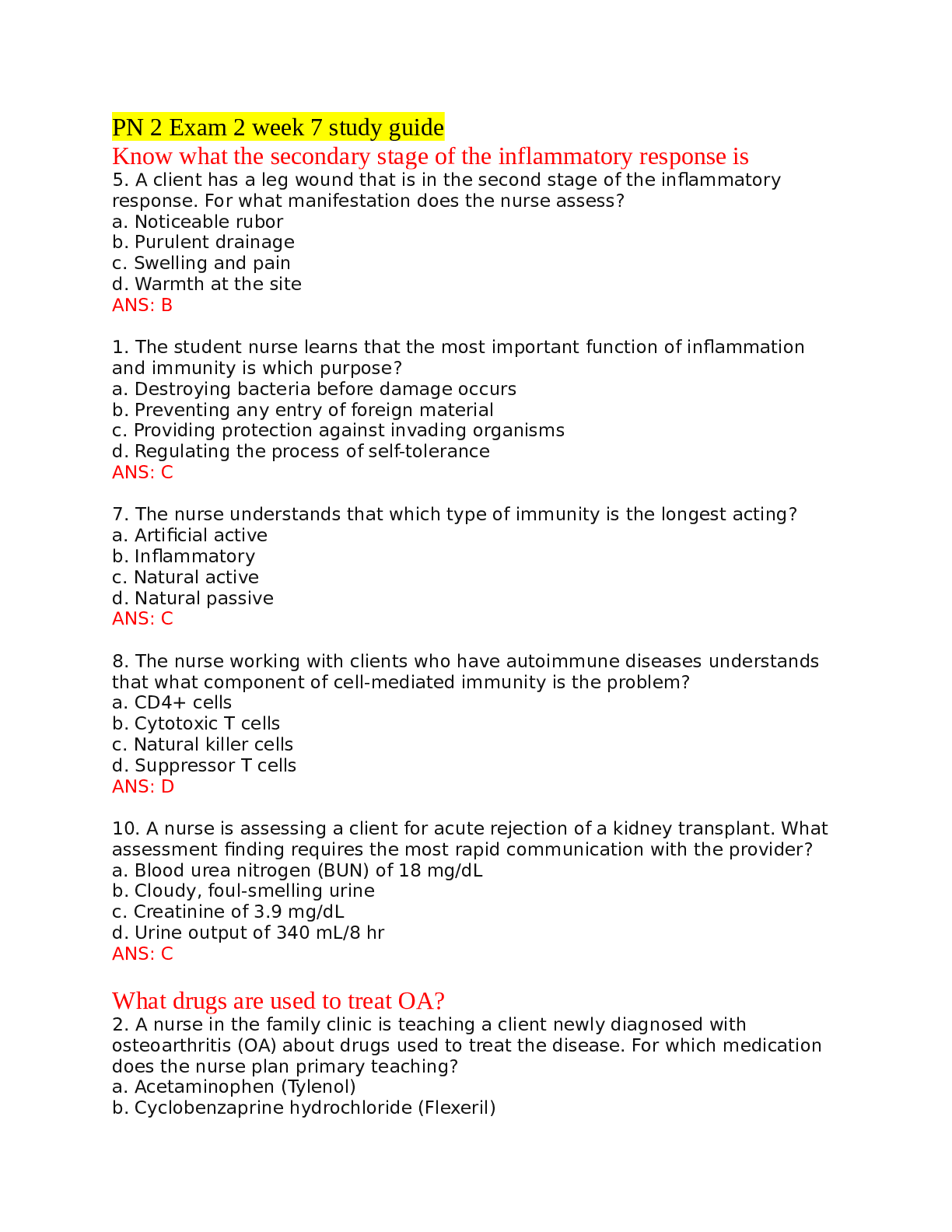





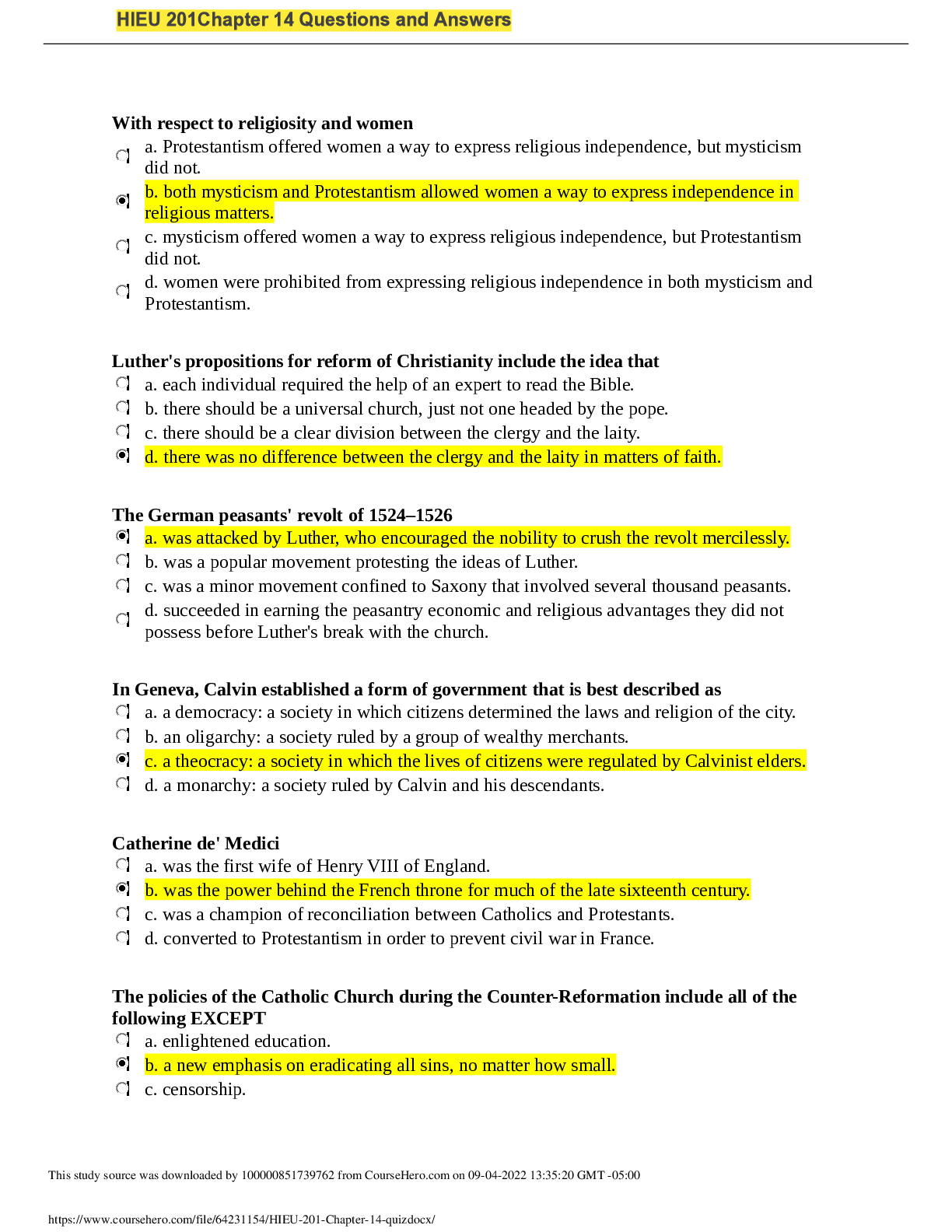

.png)




